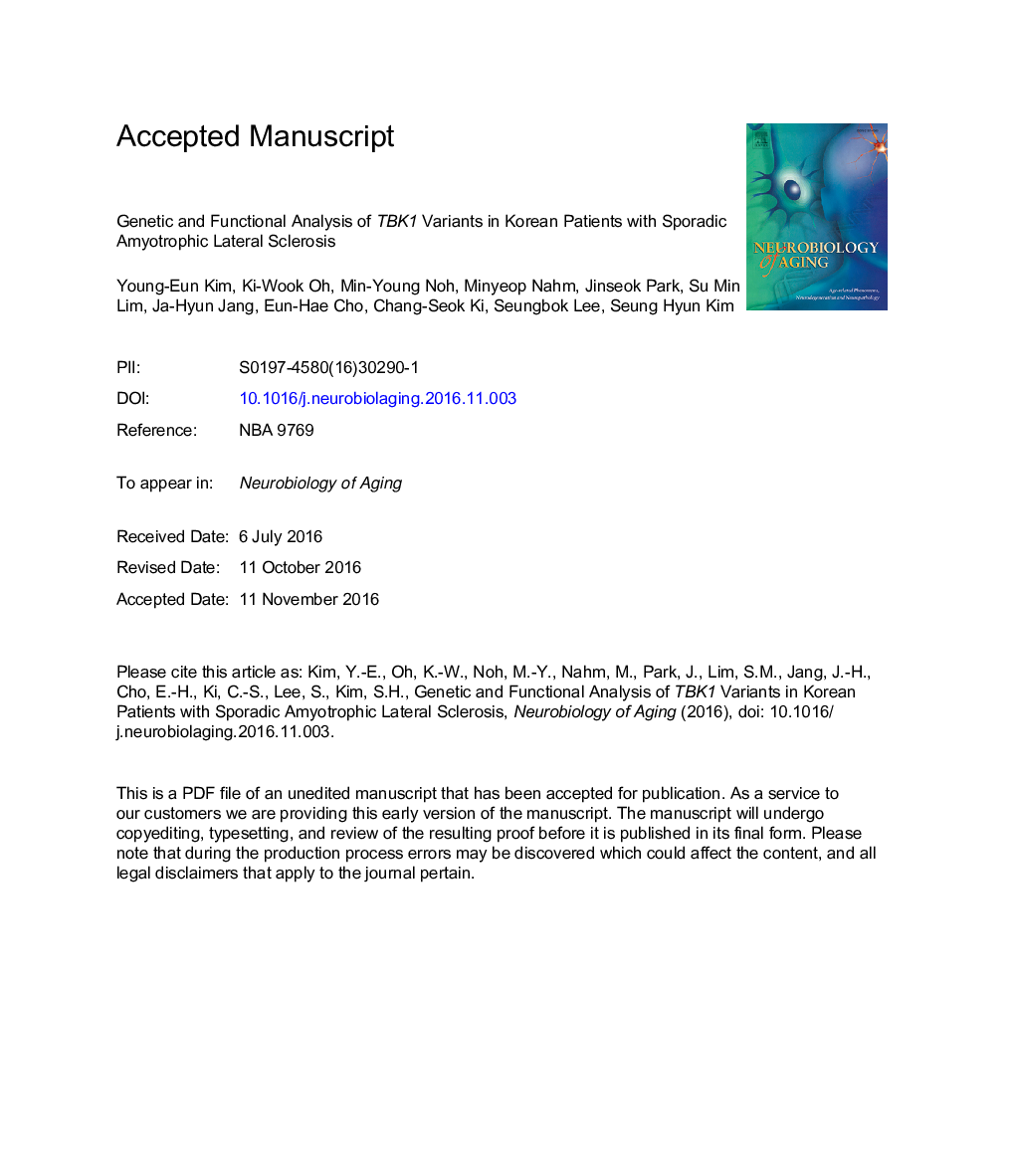| Article ID | Journal | Published Year | Pages | File Type |
|---|---|---|---|---|
| 4932856 | Neurobiology of Aging | 2017 | 30 Pages |
Abstract
The TANK-binding kinase 1 (TBK1) gene has recently been identified as a novel causative gene of amyotrophic lateral sclerosis (ALS). This study aims to determine the frequency and spectrum of TBK1 variants and their functional implications in Korean patients with sporadic ALS (sALS). TBK1 sequences were analyzed in 129 consecutive patients with sALS using either multigene panel or exome sequencing. One frameshift (c.1414delA) and 3 missense variants of uncertain significance in TBK1 were found in 4 patients each. In vitro functional studies revealed that the c.1414delA (p.Ile472Serfs*8) variant was associated with reduced mRNA expression of TBK1. Moreover, protein expression of this variant in patient-derived fibroblasts disrupted binding to autophagy adapter proteins and inhibited the function of TBK1 in HEK293T cells. In contrast, the 3 other missense variants of uncertain significance showed normal mRNA expression and no abnormalities in protein function. Based on these findings, the frequency of pathogenic TBK1 variants in Korean sALS patients was estimated to be 0.8% (1/129). In conclusion, pathogenic variants in TBK1 are rare but could be responsible for sALS in a small number of Korean patients.
Related Topics
Life Sciences
Biochemistry, Genetics and Molecular Biology
Ageing
Authors
Young-Eun Kim, Ki-Wook Oh, Min-Young Noh, Minyeop Nahm, Jinseok Park, Su Min Lim, Ja-Hyun Jang, Eun-Hae Cho, Chang-Seok Ki, Seungbok Lee, Seung Hyun Kim,
